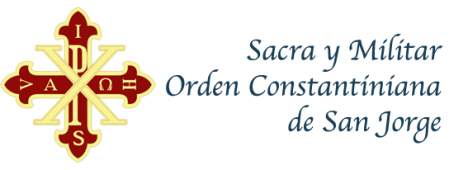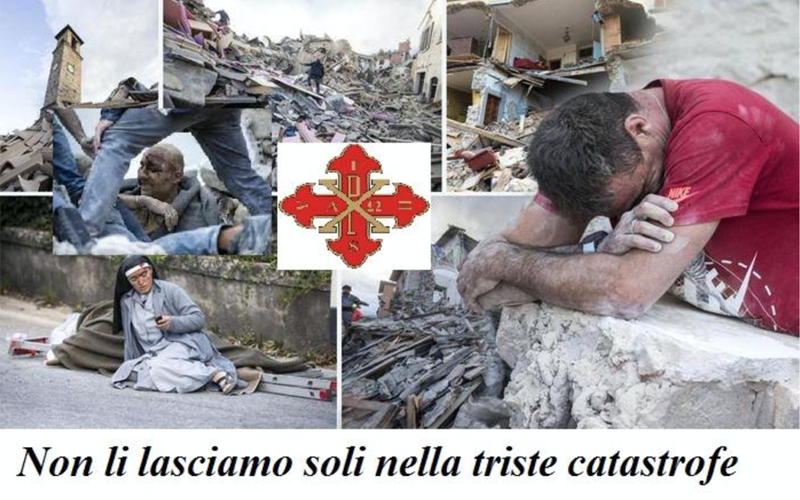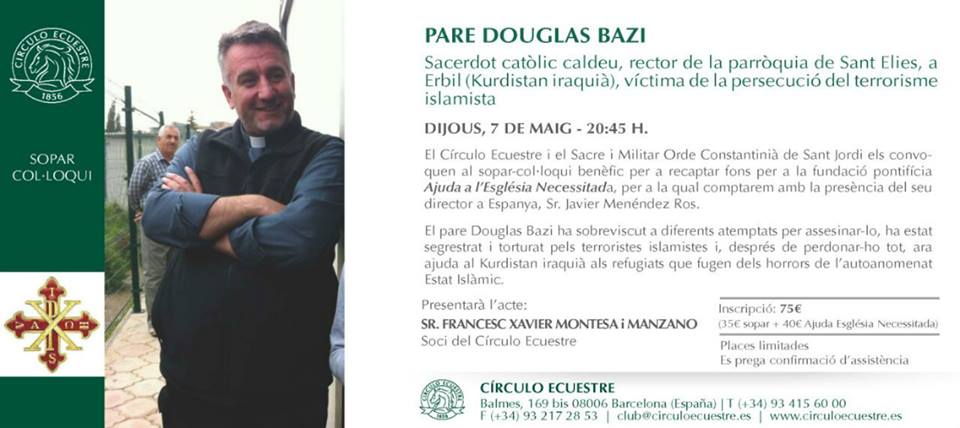The Constantinian Order, as a Christian organization, cannot be insensitive to the extraordinary human drama of the refugee crisis of the Middle East, arising from the wars of Iraq and Syria. Addressing the humanitarian consequences of the five-year war in Syria and its repercussions in Iraq is the largest humanitarian aid operation ever undertaken in Europe since World War II. This has been recalled by His Holiness Pope Francis, who is undoubtedly the world leader, who has most decidedly led the struggle to put an end to this human drama.
The Sacred Constantine Military Order of St. George, obliged to serve those persecuted by his own motto, and sensitively attentive to the words of the Holy Father, for his intimate vocation to guide his performance from loyalty to the Holy See; has taken on this challenge as a horizon.
The commitment to this cause, on the other hand, is inscribed in a genuine vocation of the Constantinian Order for historical reasons. The ancient connection of the Order with the East lands, where the Order was born and the Grand Magisterium was installed until the fall of Constantinople; as well as the genuinely Mediterranean legacy of the successive headquarters of the Grand Magisterium: Venice, Parma, the Two-Sicilies, and today of Spain; reinforce the interest of the Constantinian Order in that crisis.
In addition to this connection with the Mediterranean, Eastern and Western, there is yet another historical reason, that makes our sensibility about the people scourged by the ravages of war, as one of the vocational features of the Constantinian Order for a century. During World War I the Order was mobilized to mitigate the suffering of soldiers and civilians. On October 17, 1915, the Grand Prior of the Order obtained free access to the Military Hospital from the Superior Command of the X Corps of the Italian Army. The Order was distinguished by the uninterrupted care provided by its knights until the end of the war in the Military Hospital of Naples, Princess Yolanda, also installing 1000 beds on the hill of the Miracoli and financing the acquisition of ambulances. Through a committee presided over by the Grand Prior, the Order took care of the material and spiritual assistance of the soldiers.
In the course of World War II, the Order also provided assistance to the wounded and the prisoners in collaboration with the Red Cross, despite the difficulties imposed at that time by the Italian fascist government, contrary to the Constantinian Order. In addition to health care, special attention was paid to assist the needs of combatant’s families and the donation of books to inmates in prison camps.
This vocation reappeared on the occasion of the Yugoslav war, through the campaign of support for displaced persons in refugee camps in the early 1990s. The outbreak of the War in Syria and Iraq (2011), started a new mobilization campaign for refugees, with initiatives currently under way.





